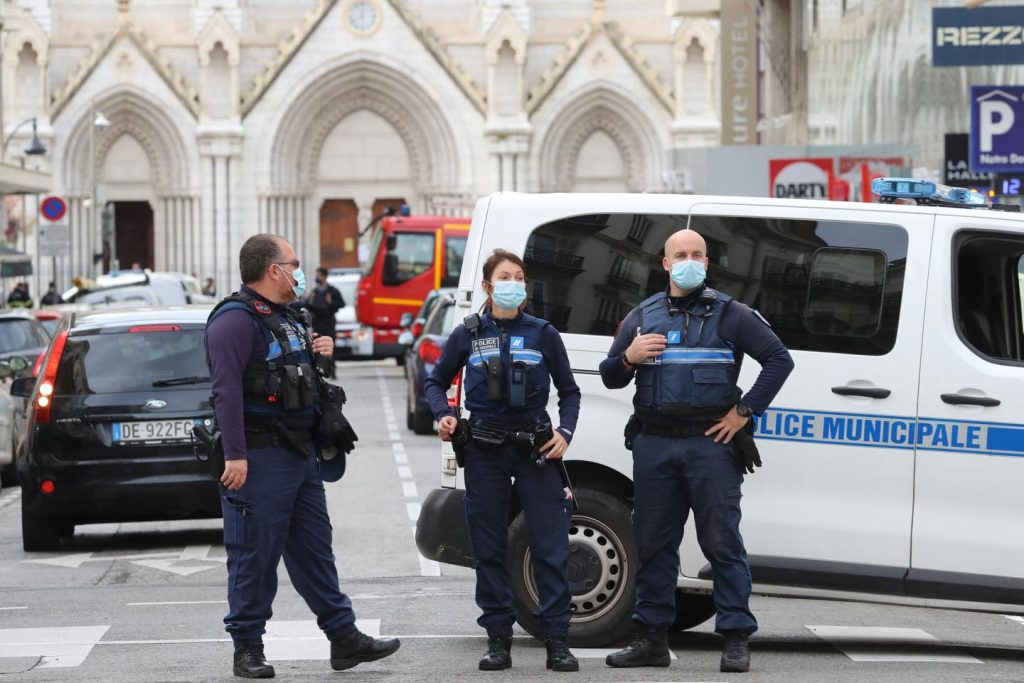Scene of the Crime
On October 29, 2020, the Notre-Dame Basilica in Nice, a historic and beloved landmark, became the backdrop to a tragic and violent event. The grim reality of a knife attack left the city and the nation in shock. The image of police officers standing guard outside the basilica, captured by photographer Valery Hache for AFP, serves as a stark reminder of the ongoing threat of terrorism and the resilience of those who work to protect their communities.
The Trial Begins
Brahim Aouissaoui, the accused in the Nice Basilica attack, appeared before the Paris Special Assize Court on Monday, February 10. Despite the gravity of the charges against him, Aouissaoui’s initial response was one of silence and a lack of cooperation. When presented with the facts of the case by President Christophe Petiteau, he flatly declared, "I don’t remember. How could I kill three people? I have nothing to say because I do not remember anything." This brief and detached statement set a somber tone for the proceedings, leaving many in the courtroom wondering about his state of mind and the depth of his involvement.
A Shift in Tone
The following day, Tuesday, marked a significant shift in Aouissaoui’s demeanor. No longer content to remain silent, he began to engage in a form of dialogue with the court, though his words were still laced with denial. President Petiteau posed a critical question: "Is it legitimate to take up arms to fight those who are not from your religion?" Aouissaoui’s response was measured but revealing. Speaking in Arabic, which was translated by an interpreter, he calmly asserted, "It’s a legitimate right when you defend your mother, sister, land." This answer shed light on his deeply held beliefs and the justifications he used to rationalize his actions.
Justification and Provocation
Aouissaoui’s defense quickly took on a combative tone as he continued to explain his stance. "All targets are legitimate. When you kill Muslims, it’s normal. But when Muslims answer and kill, is that not normal?" he argued. This statement reflects a disturbing and polarizing worldview that sees violence as a justified response to perceived threats or injustices. It also underscores the broader issue of religious and cultural tensions that often fuel such acts of violence. The courtroom, already tense, became even more so as the accused sought to challenge the moral underpinnings of the justice system and the societal norms that condemn such actions.
The Question of Terrorism
President Petiteau, maintaining a firm but respectful line of questioning, pressed further. "Do you agree with the terrorists?" he asked. Aouissaoui’s response was swift and unequivocal. "These are not the terrorists, it’s the truth," he retorted, insisting that his actions and beliefs were rooted in a higher moral and religious duty. He described himself as "Just a Muslim," a phrase that carries immense weight and complexity in the context of the trial and the broader sociopolitical landscape. This self-identification suggests that Aouissaoui sees his actions as a form of religious expression, rather than terrorism, which is a troubling but not uncommon stance among those who commit such acts.
The Unresolved Questions
As the trial progresses, many questions remain unanswered. Aouissaoui’s selective memory and his willingness to justify violence in the name of his beliefs complicate the legal and ethical debates surrounding his case. The Paris Special Assize Court must navigate the delicate balance between upholding justice and understanding the complex motivations of the accused. For the victims and their families, the trial is a crucial step in the healing process, but the court’s challenge is to ensure that the proceedings are fair and transparent. The broader community, meanwhile, grapples with the implications of such attacks and the need for effective and compassionate responses to the underlying issues of religious and cultural conflict.












